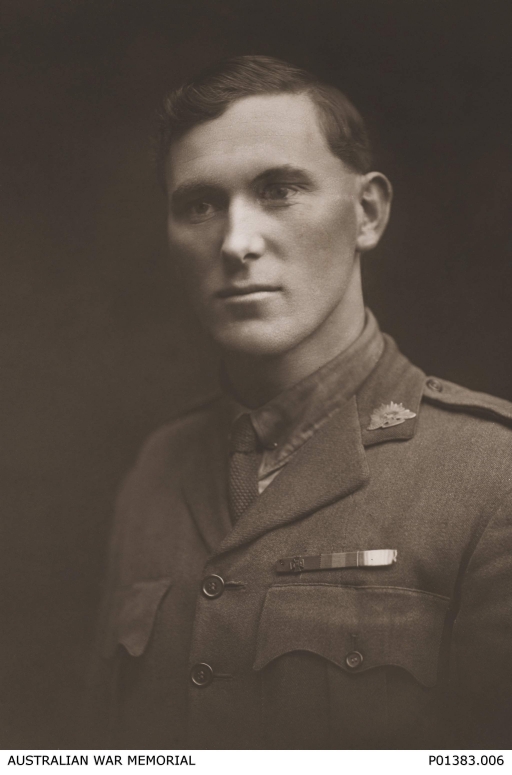The medals of Australia’s youngest Victoria Cross winner have gone on display at the Australian War Memorial in Canberra for the first time.
Private William Jackson lost his right arm rescuing wounded comrades while under fire in Northern France a century ago.
His VC is being exhibited in the Memorial’s Hall of Valour as part of commemorations marking Australia’s role in the fighting on the Western Front in 1916.
More Australians died on the battlefields of France and Belgium than in any other First World War theatre of operations.
Bill Jackson was awarded the highest British & Commonwealth bravery decoration for going back into no-man’s land and continuing to recover fellow soldiers, despite being seriously wounded himself.
Eighteen-year-old Jackson was the first Australian to be awarded the Victoria Cross on the Western Front for his actions near Armentières in June 1916.
‘Immortal deeds’
Private Jackson’s story represents those of many ordinary men and women who have done extraordinary things in unimaginable circumstances; their deeds form an immortal part of our nation’s history,” said Dr Brendan Nelson, Director of the Australian War Memorial.
William ‘Bill’ Jackson, from Gunbar, New South Wales, enlisted in the Australian Imperial Force when he was 17, having lied about his age.
He was evacuated from Gallipoli with enteric fever in October 1915 but was able to rejoin his unit in Egypt just before it sailed for France.
On the night of June 25/26th 1916, the teenaged soldier was part of a trench-raiding party that broke into German positions outside Armentières on the French/Belgian border.
The Australians came under intense artillery and machine-gun as they withdrew, suffering many casualties.
Priivate Jackson reached his own lines safely with a prisoner, but insisted on returning to no-man’s land to recover wounded men until he too was hit by a German shell blast.
He lost his right arm but carried on with the rescue after treatment.
‘Greatest coolness’
Jackson’s VC citation in September 1916 noted: “He set a splendid example of pluck and determination. His work has always been marked by the greatest coolness and bravery.”
After a lengthy period in hospital in England, he returned home and was discharged from the Australian Imperial Force. He died in Melbourne in 1959.
Dr Brendan Nelson said: “This July and August we commemorate events that are beyond the comprehension of our comfortable modern lives.
“More than 100 years ago the Gallipoli campaign ended, leaving 8,700 dead, but the worst was yet to come; on 19 and 20 July at Fromelles, Australia suffered 5,500 casualties in less than 24 hours,” the Australian War Memorial’s Director noted
“Charles Bean, our official First World War historian at the front, was witness to Australia sustaining 23,000 casualties over the six weeks at Pozières (on the Somme).
“A mortally wounded Australian asked Bean if those in Australia would remember his sacrifice, and, reflecting on the question, Bean wrote: ‘Many a man lying out there at Pozières or in the low scrub at Gallipoli, with his poor tired senses barely working through the fever of his brain, has thought in his last moments: “Well – well – it’s over; but in Australia they will be proud of this.’
“We are,” Dr Nelson declared.
Source: The Australian War Memorial, Canberra
Images courtesy of AWM (P01383.006)
Posted by: CN Editorial Team
